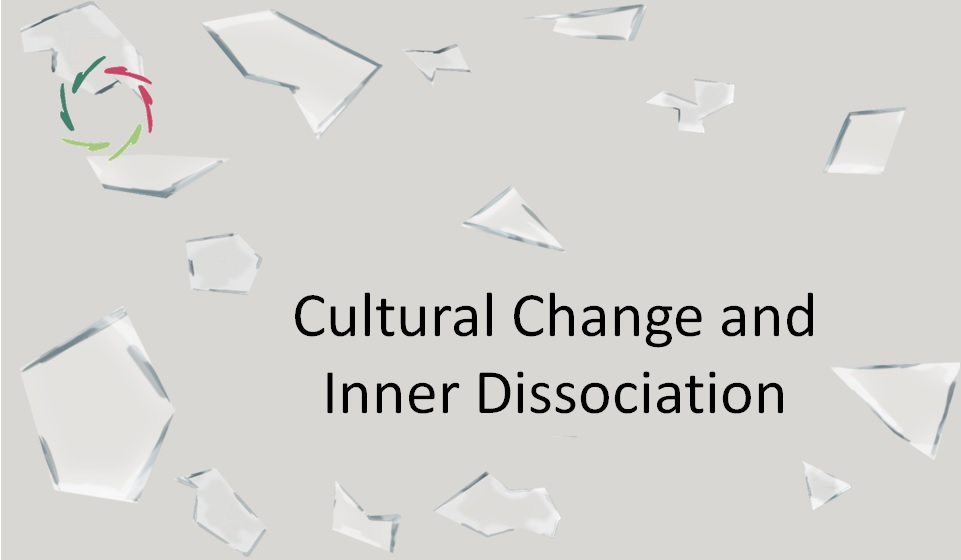Cultural Change and Inner Dissociation

Cultural change that does not originate from within is not genuine growth and often leads to challenging tensions, especially when changes occur rapidly, such as with evolving technology.
This phenomenon is evident in many parts of the world today.
Inner dissociation hampers natural growth.
It’s akin to the roots of a plant being substantially disconnected from the rest. The plant may survive under normal conditions, but during exceptional demand, it suffers from a lack of essential water and nutrients.
Natural growth gets replaced by problems ahead.
This causes numerous divides between opposing groups across some ideological spectrum.
One can see in the exaggerated presence of such groups an inner dissociation at both cultural and individual levels.
The root cause of these troubles is not just the demand for progress, but its combination with pre-existing inner dissociation, often neglected or poorly understood over time, whether explicitly recognized or subtly present.
We are witnessing abundant technological changes at present.
The advent of A.I. is no exception, with many significant changes on the horizon.
The question is whether this will foster growth or lead to tensions beyond people’s capacity to handle. Should we then halt technological advancement?
In today’s competitive environment, there is no room to halt progress for such invisible reasons.
Of course, the dissociation itself makes them even more invisible.
Consequently, cultural tensions erupt on a large scale.
The solution lies in reducing inner dissociation. This can be achieved through autosuggestion and mental support tools. Utilizing resources like AurelisOnLine and Lisa can foster inner growth, reduce conflicts, and provide profound mental support.
The so-called ‘deep state’?
Frequently discussed but never pinpointed, the ‘deep state’ exists at least in the mind.
It primarily represents the feeling that stems from inner dissociation at a cultural level, invisible even when mentally sought due to the dissociation itself. With no eyes, one cannot see eyes.
The supposed conspiracy of the ‘deep state’ is merely one of many mental symptoms of underlying social tensions.
Turmoil ahead
In the face of a shrinking world and growing technology, we can anticipate more cultural changes in the coming years than ever before.
Many people will likely be unprepared for this in their current state of mind, leading to stress, anxiety, burnout, depression, and numerous other personal problems.
Additionally, and possibly even more challenging, there will be considerable societal turmoil. Without addressing the deeper layers of the mind, progress may result in superficial and potentially harmful outcomes. We can only hope it doesn’t escalate to major conflicts.
Wanted: deep mental support
Unfortunately, contemporary mental support seldom reaches deeper levels, which is why many psychotherapies are not methodologically effective. Durable change (growth) happens from inside.
However, given societal demands, we need much more. Comprehensive mental support systems can address both individual and societal needs, fostering a more resilient community.
Suggested: By utilizing AURELIS tools, individuals can engage in deep mental support that fosters inner growth and reduces inner dissociation. These tools enable lasting change from the inside out, leading to improved personal and societal outcomes.
Lisa can be a valuable resource, offering Compassionate support and guiding individuals towards inner harmony and societal cohesion.


